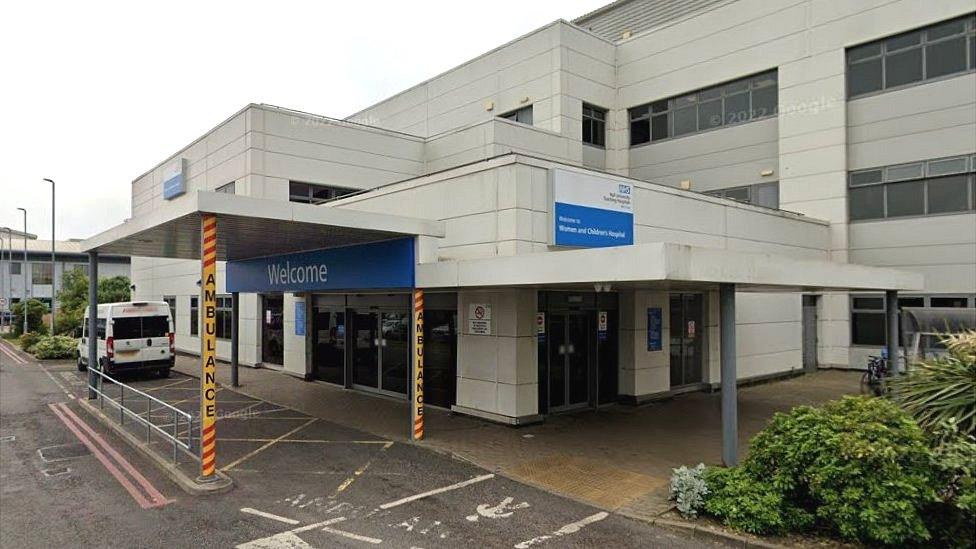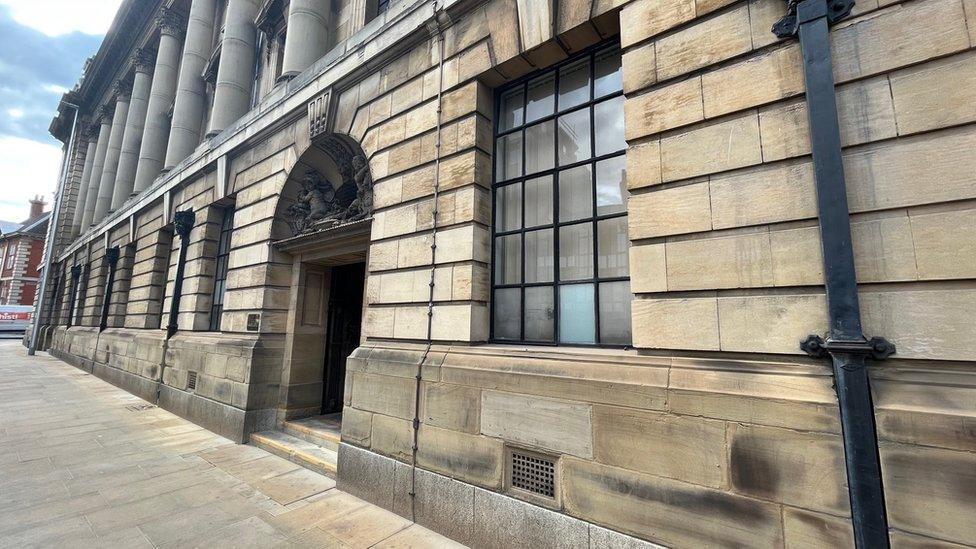Baby boy died after forceps delivery at Hull Women and Children's
- Published

Finley Austin May was delivered using forceps at Hull Women and Children's Hospital on 16 February 2021
The mother of a boy who died after being delivered using forceps says she "would never have agreed" to their use had she been made aware of the dangers.
Finley May died on 16 March 2021 from brain damage caused by a skull fracture resulting from use of the forceps.
He was born at Hull Women and Children's Hospital on 16 February 2021 following a normal pregnancy.
Sasha Leuty told an inquest into her son's death: "It was never suggested anything serious could happen."
Hull University Teaching Hospitals NHS Trust, which runs the facility, has since withdrawn Kielland forceps from use, the inquest was informed.

The inquest was held at Hull Coroner's Court
Finley, described by his mother as "dearly loved", was observed by a midwife to be "floppy" when he was born at 22:46 GMT. He was immediately taken away to a separate room where he was put on a ventilator. He never recovered.
In a statement read out at the hearing, Ms Leuty, now 32, from Hull, said: "We still cannot believe how it was allowed to happen."
She explained how she was deemed "low risk" by medical professionals throughout her pregnancy. Additionally, routine scans showed no cause for concerns around Finley's development during the pregnancy.
Ms Leuty attended the hospital, with the baby's father John May, at midday on 16 February when her contractions increased in frequency.
Concerns were raised that Finley was in the "back-to-back position" - where his spine was touching his mother's causing her back pain - but monitoring showed his heart rate was normal.
'Slow progress'
Ms Leuty, previously a radiographer at the same hospital trust, was given an epidural for pain relief and later the hormone oxytocin in an attempt to speed up labour.
When there was still no sign of the baby coming, the decision was made to assist the birth using forceps.
However, she told the hearing she "would never have agreed" to use of the forceps had the risks been explained to her.
Ms Leuty said she would have accepted a Caesarean section but insisted this option was not offered to her.
At the request of coroner Professor Paul Marks, a set of Kielland forceps were produced during the hearing.
Giving evidence, James Tibbott, a consultant gynaecologist involved in the delivery, said the decision was made to use the forceps due to "slow progress".
He said another gynaecologist, who can only be named as Doctor A, applied the forceps - used by doctors to rotate a baby to assist deliveries - "under my direct supervision".
Dr Tibbott said he accepted Finley's head "rotated" but his body did not, leading to the injuries.
The coroner asked Dr Tibbott why he thought that had happened.
"I don't know, sir," he replied. "It's a question I have asked multiple times."
Dr Tibbott was quizzed by the coroner on why the trust later decided to withdraw the use of Kielland forceps.
"I was not involved in that decision-making," the doctor replied.
The hearing continues.

Follow BBC East Yorkshire and Lincolnshire on Facebook, external, Twitter, external, and Instagram, external. Send your story ideas to yorkslincs.news@bbc.co.uk, external.